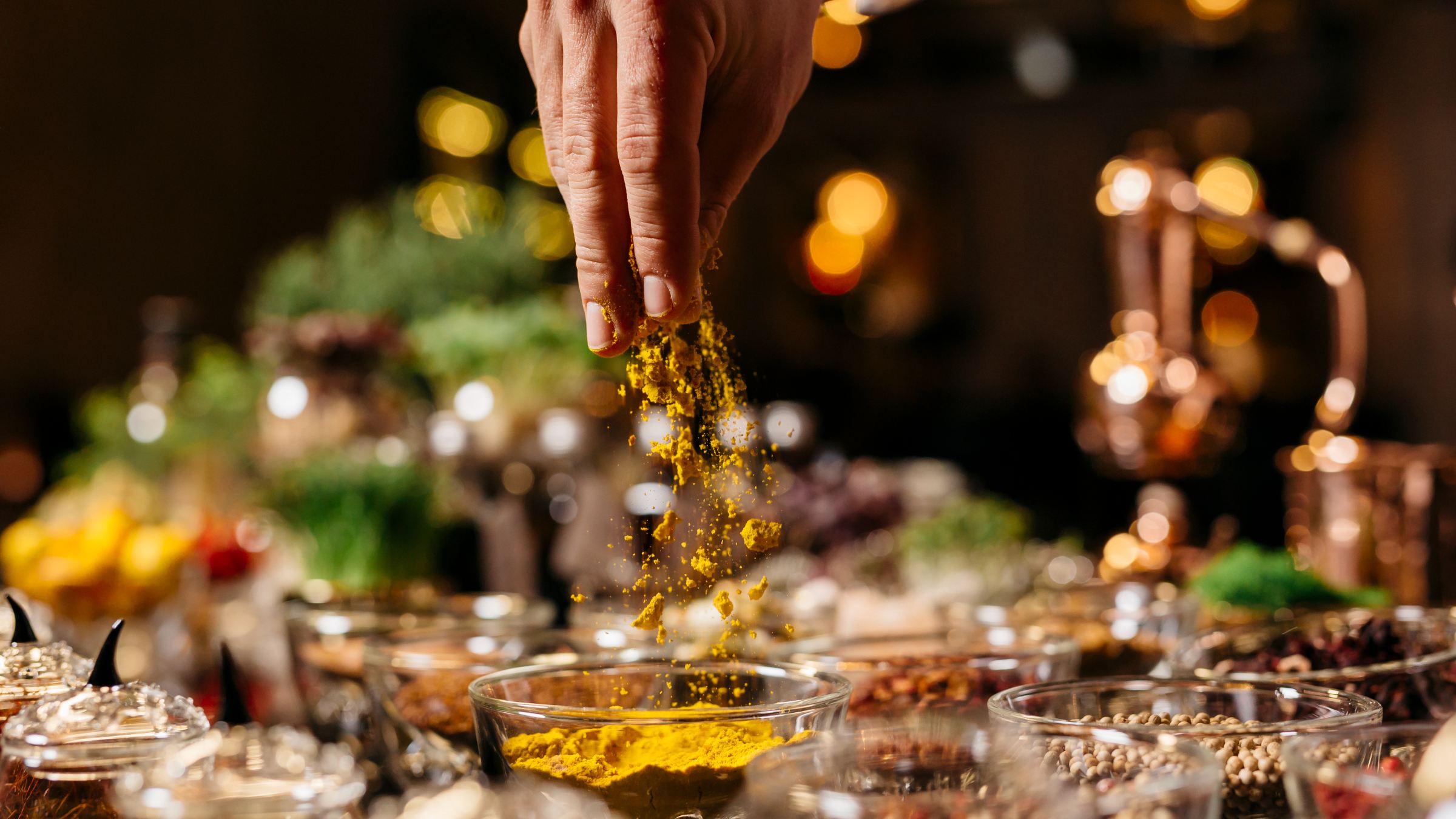
When talking with clients about the benefits that come from plant foods, one of the main points I try to emphasize is that there is no one plant that tops the nutrition list. The greatest benefit from plants comes when you eat a variety of colors and flavors.
Because they are plant-derived, the same holds true when it comes to herbs and spices. Aim to include a variety in your meals. Here, I answer some questions about using herbs and spices to promote health.
What are some of the proven benefits of herbs and spices?
Like all plants, herbs and spices are great sources of phytochemicals. Phytochemicals are health-promoting chemicals that can help lower cholesterol, prevent cell damage, inhibit the growth of cancer cells, reduce inflammation and provide many other benefits.
Some of the more common spices that may help with specific health-related concerns:
- Chile pepper may contribute to increased control over insulin levels, heart health, weight management and fat loss.
- Cinnamon may help with insulin response.
- Garlic may help with heart-related concerns, such as high cholesterol and blood pressure.
- Ginger may help with nausea and vomiting in cancer patients and pregnant people.
- Turmeric may help with joint pain and contribute to benefits related to anti-aging, cancer, dementia and heart disease.
How much do I need to consume to promote health?
There’s no evidence that points to the need for a specific amount of any herbs and spices. But it’s a good idea to try to use them more often. In American culture, we often rely on salt and black pepper to flavor our foods. Black pepper offers some benefits, but so do garlic, onion powder, chile peppers, sage and oregano, for example.
Should I take herbs and spices that are available in pill form or as supplements?
Some herbal supplements have been shown effective against certain diseases or conditions. But it’s always important to talk with your physician or a dietitian or pharmacist before using any supplement.
Overall, it’s safer to get herbs and spices from your food to prevent any potential negative side effects.
Even though they’re natural and come from plants, highly concentrated amounts of some herbs and spices are not necessarily more beneficial, and they could be dangerous. For example, turmeric contains curcumin, which can negatively affect the liver when taken in high amounts. Further, certain herbs might aggravate certain conditions or have negative interactions with certain medications.
Is it better to use fresh herbs and spices or dried versions?
The best version is the version you will use. The only difference between fresh and dried versions is that dried versions have the water removed. You’ll still get most of the benefits you get from fresh versions, but flavor will likely be more concentrated, so you’ll need to use less. And keep in mind that certain herbs and spices take on a different flavor when dried.
How can I use more herbs and spices in my cooking?
One easy idea is to add additional spices to foods that are already flavorful. For example, you could add cumin or turmeric to soups, chilis, slow cooker meals and casseroles. Any recipes with a little longer cooking time will allow the flavor to blend with dish. Note that dried herbs take a little longer to cook to achieve fuller flavor. For more ideas, check out our Healthy Recipes and Cooking Demonstrations for more ideas.
You can also search recipes online using the name of the spice as a keyword. If buying cookbooks, you might look for “anti-inflammatory” or “Mediterranean” in the description; these types of recipes often call for more and varied herbs and spices. Stick with cookbooks written by dietitians, which should be more health-conscious.
Should I grow my own herbs and spices?
If it will make you more likely to cook, or if you enjoy gardening, yes. If not, you should be able to get what you need at the store. Keep in mind, herbs are not the type of plants you can leave alone for a while. They’ll need regular watering and trimming to keep producing.
Do you recommend blends?
There are some very tasty seasoning blends out there, but keep in mind that many blends have added salt. We need some salt, but Americans tend to get more than enough from the foods we regularly eat. This is something to keep in mind when adding these blends.
I personally like to use salt-free seasoning blends to get more flavor from only herbs and spices. With these, you can also add your own salt to taste. Common options in the grocery store are Dash (previously Mrs. Dash) blends.
Carly Arnold, a dietetic intern at The Ohio State University Wexner Medical Center, contributed to this article.

Take the first steps to a healthier lifestyle
Ditch the fads and start taking real steps to improving your health with the nutrition and dietary experts from Ohio State.
Start today




